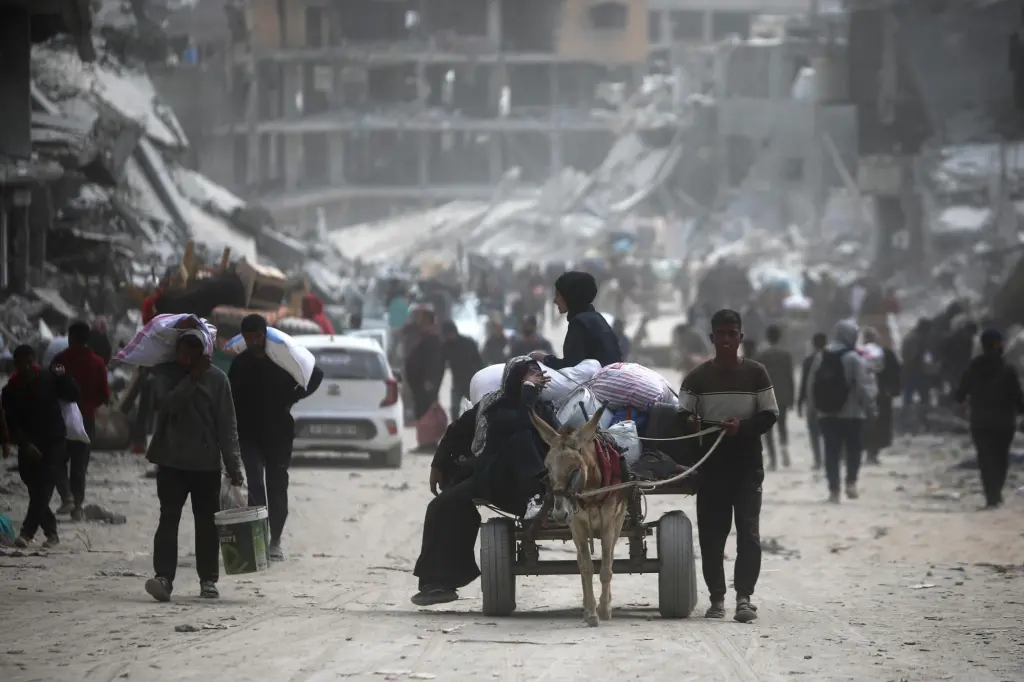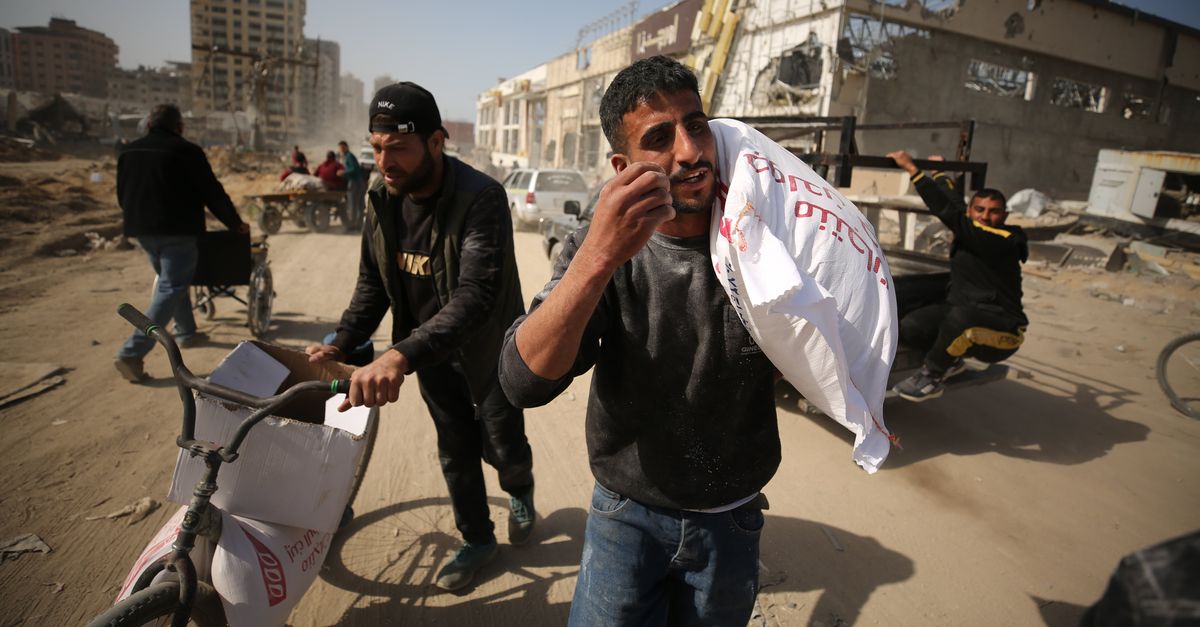Efforts to address the dire humanitarian situation in northern Gaza gained momentum as the European Union advocated for a sea route from Cyprus to Gaza, and British Foreign Minister David Cameron highlighted waning patience among Israel’s allies.
While Gaza as a whole faces a humanitarian crisis, the situation in the north is particularly severe, with many residents resorting to consuming animal fodder to survive. The United Nations reports alarming levels of acute malnutrition among children under two in this region.
In response to global pressure, Israeli officials announced plans to allow aid to enter northern Gaza directly from Israel and to cooperate in establishing the proposed sea route from Cyprus.
Initial steps include permitting a limited number of aid trucks to enter Gaza from Israel and conducting security checks on aid shipments in Cyprus. These initiatives aim to alleviate the ongoing crisis, with support from the United Arab Emirates and the United States.

Israel Under Pressure: Calls to Open More Aid Routes to Gaza as Hunger Grows (Credits: The Denver Post)
Despite these efforts, delivering aid within Gaza remains challenging due to coordination difficulties with the Israeli military, ongoing hostilities, and breakdowns in public order.
Access to the northern region is especially problematic, requiring aid trucks to navigate through conflict zones from crossings at the southern edge of Gaza. Previous attempts to facilitate aid movement resulted in tragedy, highlighting the urgent need for effective solutions to ensure humanitarian assistance reaches those in need.
International support for Gaza’s humanitarian situation continues to grow, with countries like the United States, Jordan, and others conducting air drops of aid. However, air transport can only deliver a fraction of the required assistance. Concerned by the lack of access to food, the European Union and other nations are hopeful for the establishment of the proposed sea route, which could significantly increase aid delivery to Gaza.
The ongoing conflict between Israel and Hamas has exacerbated the humanitarian crisis, with thousands killed and many more displaced. Despite efforts to negotiate a ceasefire ahead of the Muslim holy month of Ramadan, progress has been limited.
Proposals for a temporary ceasefire, prisoner releases, and increased aid have yet to yield significant results, with Hamas insisting on a complete end to the conflict and Israeli withdrawal. The situation remains tense, with millions of lives at stake and the urgent need for lasting solutions to address the humanitarian emergency in Gaza.
























